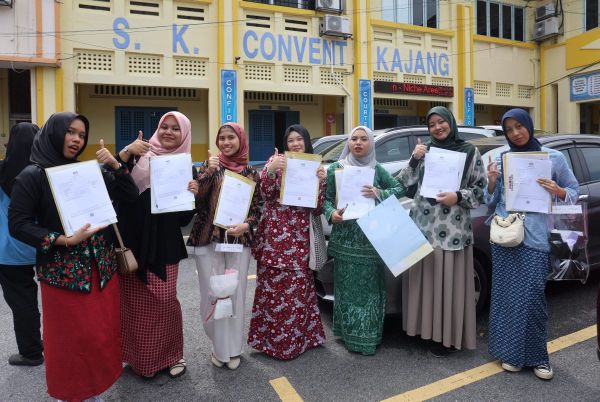By Media Selangor Team
SHAH ALAM, April 30 — The federal government’s decision to open matriculation to all who scored 10As and above in the Sijil Pelajaran Malaysia (SPM), regardless of race, has been hailed as a progressive move.
State executive councillor for human resources and poverty eradication V. Papparaidu said the timely measure lays the foundation for a higher education system that is more transparent, competitive and inclusive.
“It not only reflects a commitment to meritocracy, but also underscores the nation’s aspiration to build a fairer, more inclusive, and globally competitive future,” he said in a statement today.
Papparaidu said the move aligns with the Malaysia Madani vision to nurture its people in terms of values, knowledge, and equitable opportunities, and shows great leadership and political will.
“I welcome this policy and hope the government continues to introduce more initiatives grounded in merit and social justice. No talent should go to waste, and every Malaysian child deserves the opportunity to reach their full potential,” he added.
[caption id="attachment_377674" align="aligncenter" width="1200"] State executive councillor for human resources and poverty eradication V. Papparaidu speaks during the Jobcare Istimewa event at the MBSA Convention Centre in Shah Alam, on October 28, 2024. — Picture by HAFIZ OTHMAN/MEDIA SELANGOR[/caption]
State executive councillor for human resources and poverty eradication V. Papparaidu speaks during the Jobcare Istimewa event at the MBSA Convention Centre in Shah Alam, on October 28, 2024. — Picture by HAFIZ OTHMAN/MEDIA SELANGOR[/caption]
In June last year, Prime Minister Datuk Seri Anwar Ibrahim announced that all SPM graduates with at least 10As will be guaranteed a place in any matriculation programme.
He said the decision was made to ensure fairness in education, noting some SPM leavers have limited education opportunities despite earning good results, due to their race and place of residence.
The matriculation was established in 1998 as a preparatory programme for Bumiputera students to enter undergraduate studies in science, technology and professional arts at higher learning institutions.
From 2005, the selection was amended to a race-based quota, with 90 per cent reserved for Bumiputera students.
[caption id="attachment_398714" align="aligncenter" width="1200"] Students celebrate after collecting their Sijil Pelajaran Malaysia results at Sekolah Sultan Alam Shah, Putrajaya, on April 24, 2025. — Picture by BERNAMA[/caption]
Students celebrate after collecting their Sijil Pelajaran Malaysia results at Sekolah Sultan Alam Shah, Putrajaya, on April 24, 2025. — Picture by BERNAMA[/caption]
Papparaidu said the move is a clear signal that the government is serious about addressing imbalances in education and is committed to ensuring the equitable development of the higher education system.
From a social perspective, he said, the policy carries significant impact as it fosters greater racial unity due to its merit-based system, and motivates students from all backgrounds to work harder.
“This fairer opportunity will empower students from rural areas and low-income families, paving the way for greater social mobility. With broader access to quality education, the country will be better positioned to cultivate a more knowledgeable and competitive younger generation.
“From an economic standpoint, investing in human capital is key to sustainable growth. By providing top-performing students with opportunities to further their education, we are sowing the seeds for a highly skilled workforce.
“This will strengthen the nation’s ability to compete in an increasingly challenging global economy driven by technology and innovation,” Papparaidu said.
He added that producing more quality graduates means a larger workforce that can contribute to the country’s strategic sectors.




